How Nutrition Helps You Recover
- July 23, 2017
- Last Updated: November 27, 2023
- 43 Comments
- Nutrition
I received a question from a reader in marathon training about the best things to eat for marathon training, so I figured I’d make a post about it!
Even though I’m not currently in a high training state, I love to share what to eat for a 20 mile run. I think it’s important to show what a normal relationship with food can look like, and how normal, consistent eating plays a role.
PS – the Nathan hydration backpack is amazing!
As an Amazon Associate, I may earn from qualifying purchases. You can read more here on our Disclaimer and Privacy Page.
I’m sure most of us have experienced workouts where we knew we didn’t eat the right thing beforehand. We may have felt bloated, lethargic, or just “off,” if our meal was eaten too close or too far away from our workout.
Or, if we didn’t have the right proportion of carbohydrates, fat and protein.
Well, it’s similar after a workout too. Nutrition can definitely play a role – eating the right thing and at the right time can have a tremendous impact on how we feel the following days and how our muscles recover.
Making sure you’re eating enough, knowing signs of hunger, and not experiencing symptoms of RED-S comes into play too.
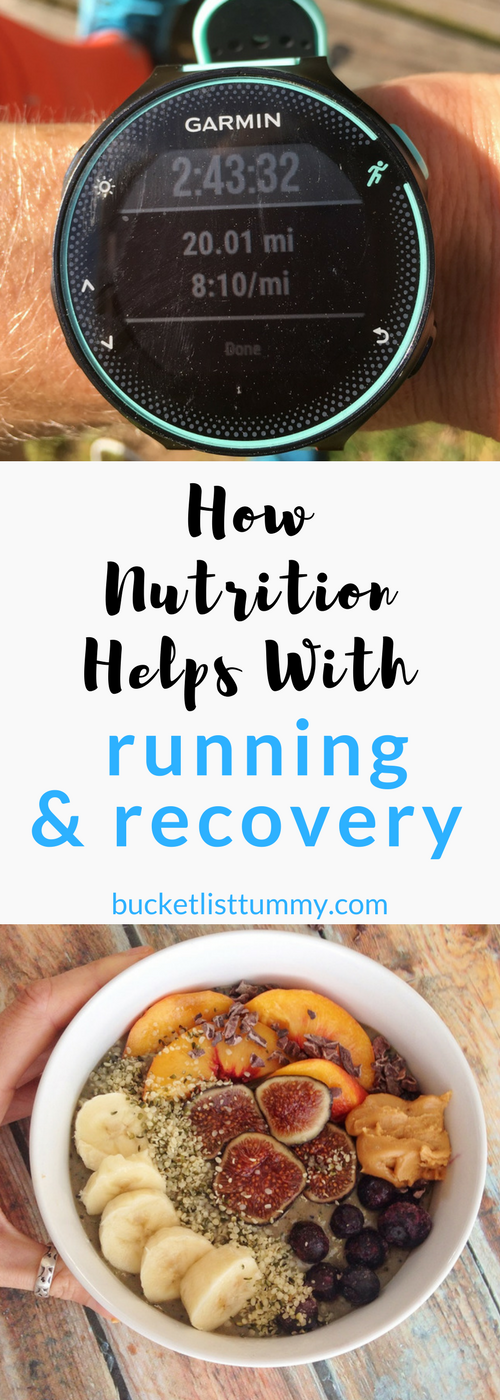
The Macronutrients
Immediately after exercise, our muscles are primed to assimilate and build protein from amino acids from the blood. After exercise, our muscles are also most efficient at absorbing carbohydrates.
The amino acids replenish and build protein stores, while the carbohydrates refill our glycogen stores.
Carbohydrates also stimulate insulin, an anabolic hormone that helps with muscle building and bringing carbohydrates into the muscles.
Ideally, you want a 3:1-4:1 ratio of carbohydrates to protein. Your body can only absorb a certain amount of protein at once, so loading up your smoothie with 50 grams of protein is pretty futile.
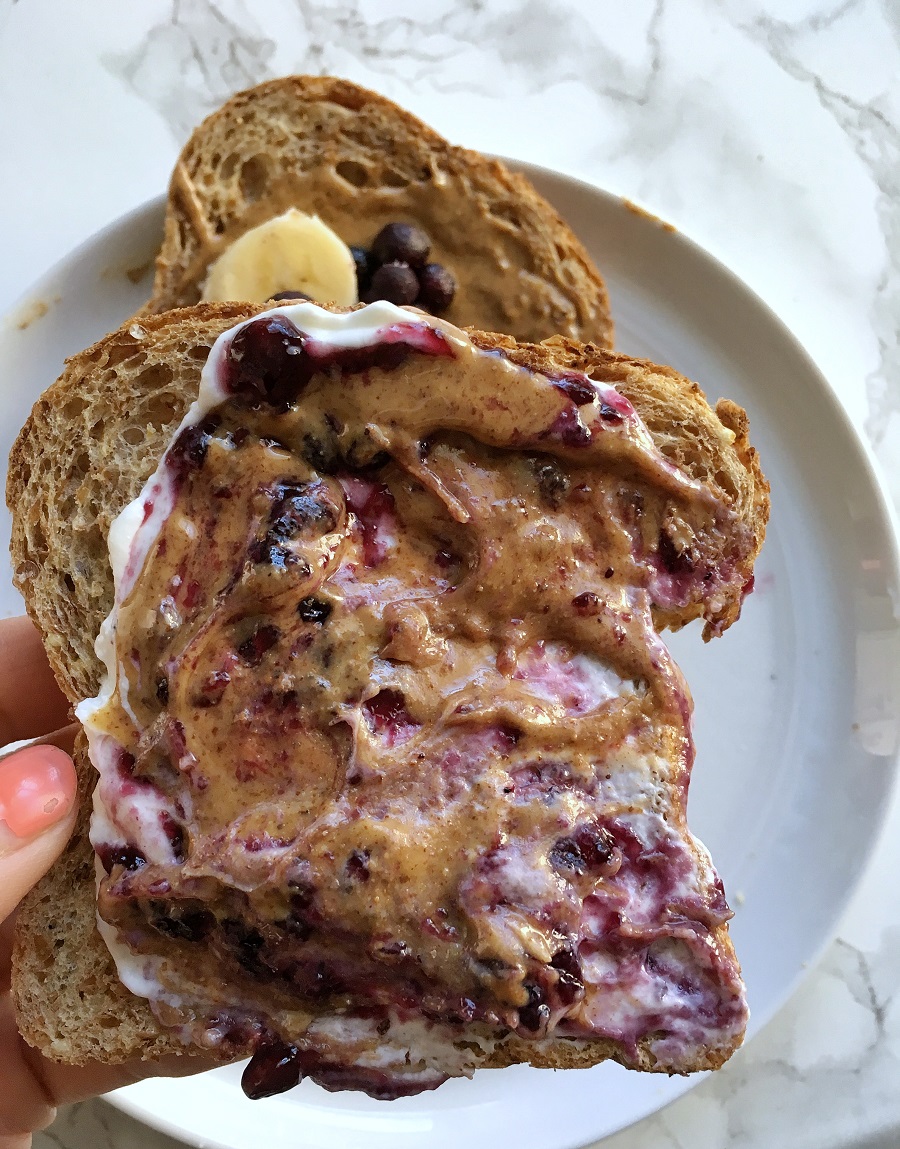
We used to tell athletes to refuel within 30-60 minutes of exercise, but recent research has shown that the time window may be much longer.
I also talk a little more about the window in this Women’s Running article.
Amino Acids After Exercise
Muscles will continue to take up carbohydrates over the next 24 hours but just not as quickly as soon after.
So, while you don’t have to kill yourself to get food in immediately after, I would recommend trying to get it in sooner rather than later – your body needs it!
Check out this post to see, how much protein do athletes need?
Try to get good quality protein too, and pick sources with essential amino acids (EAA). EAA refer to amino acids that our body can’t make, especially leucine.
- 1 cup of greek yogurt has 5.7 grams of EAA (1.2 g leucine)
- 1 oz skinless chicken breast has 3.9 grams of EAA (.8 g leucine)
- 1/2 oz of almonds which only has 0.9 grams of EAA (.2 g leucine)
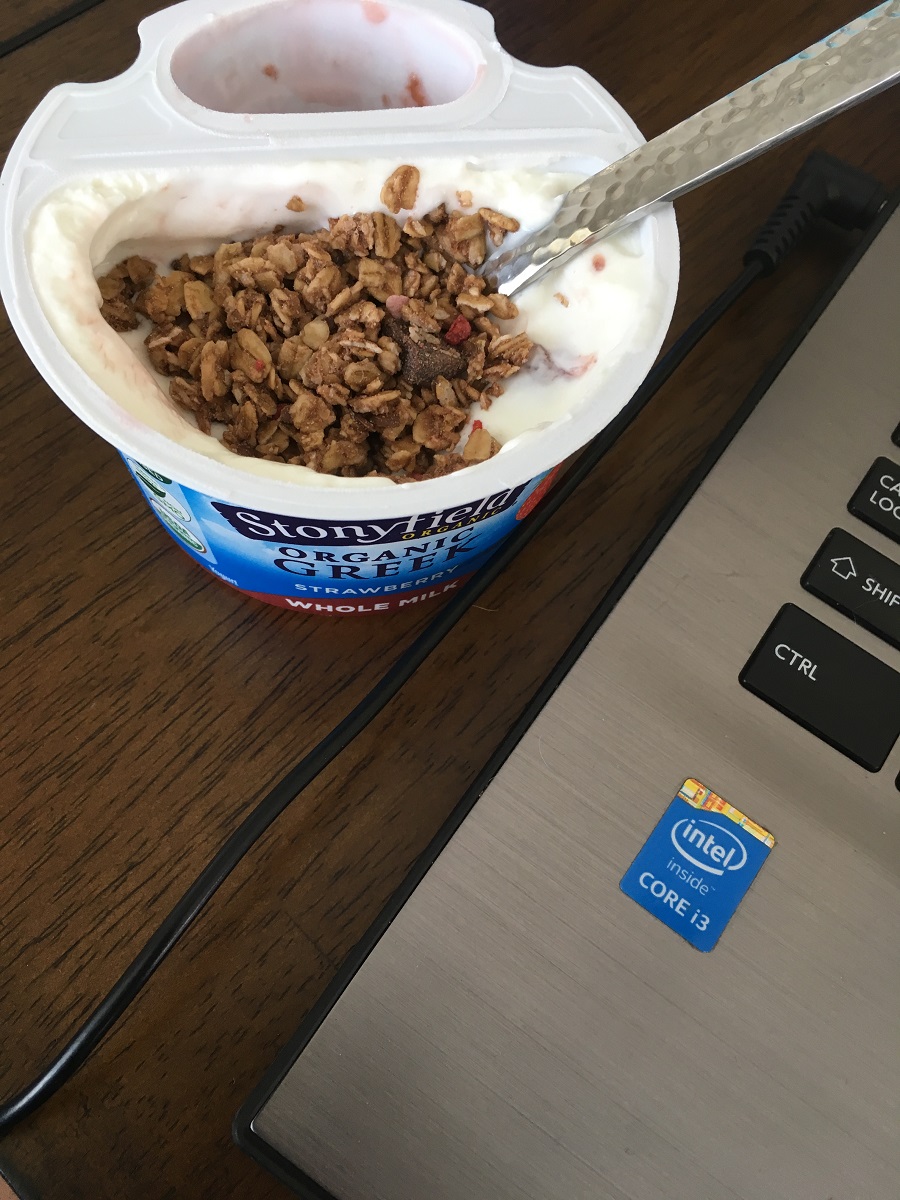
Conclusion: After exercise, you want a combination of protein + carbs to replenish and rebuild your muscle stores.
High Protein Post Workout Meal
- Chocolate milk
- Oats with milk/yogurt and fruit
- Fruit smoothie with Greek yogurt
- Fish/chicken/beef with veggies and a grain
- Peanut Butter/yogurt toast
- Greek yogurt cup with berries/cereal
- Sandwich (turkey, tuna, chicken, etc) or wrap with some fruit

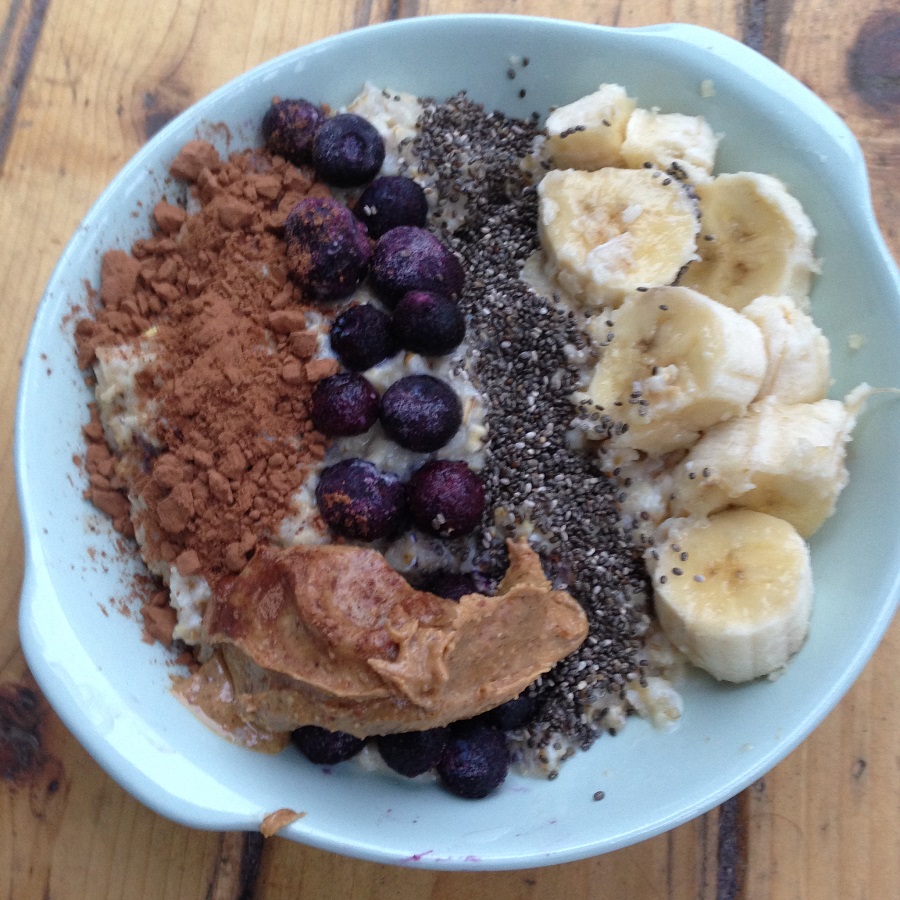
The Micronutrients
The main vitamins we think of with exercise are Vitamins C, E and beta carotene, which are all antioxidants. You get these nutrients through a balanced diet as well.
In this post about recovery foods after exercise, I talk about some of my favorite recovery foods, many of them with a high antioxidant content.
Foods high in Vitamin C include oranges, red peppers, strawberries, kiwi, mango, kale, brussel sprouts and broccoli.
Carrots, sweet potatoes, squash, kale, spinach and apricots are high in beta carotene (a precursor to Vitamin A) and very good for recovery as well.

Conclusion: If you’re eating adequate fresh fruits/veggies, you’re probably getting a good amount of antioxidants.
The Electrolytes
When you sweat, you lose water but also minerals like potassium and sodium. Electrolytes for runners are important to replenish because they help the water “stay” in our system.
Otherwise, we’d just be drinking water and peeing it out. They also regulate blood pressure, pH, and nerve and muscle function. Some muscle cramps may be a mix of dehydration or electrolyte imbalance.
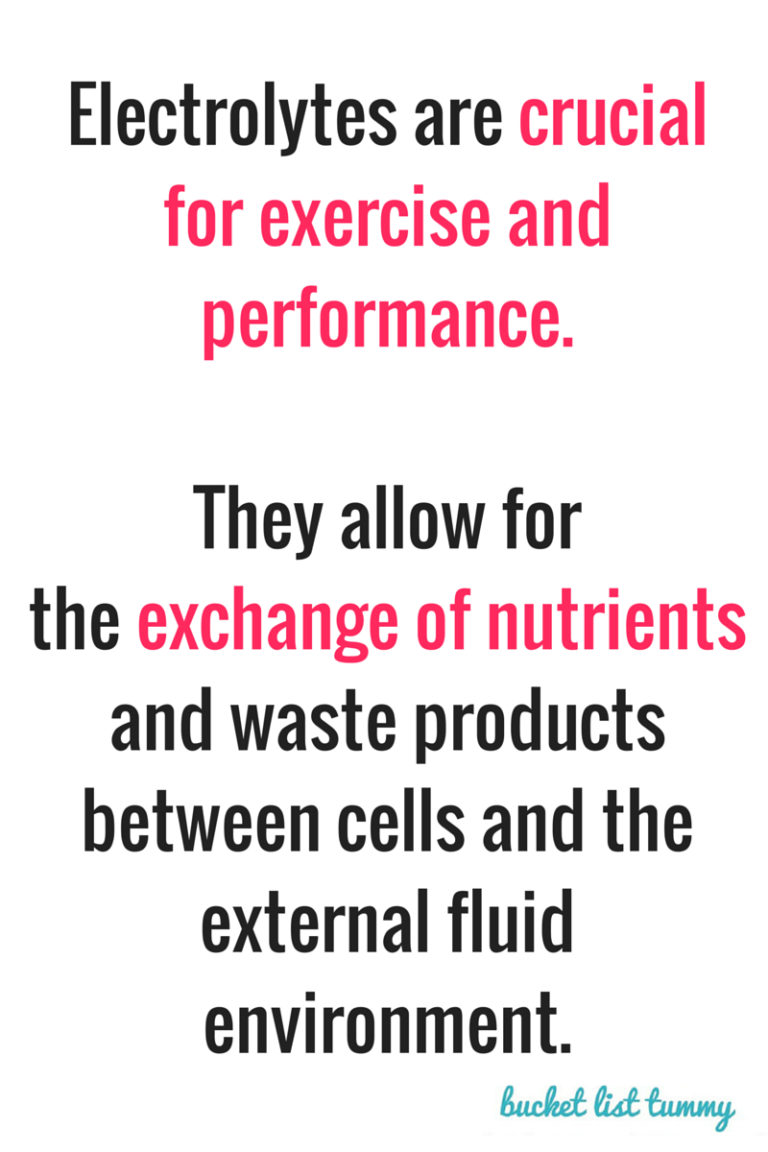
Fluid needs vary by person, activity and time of year, so it’s nearly impossible to offer one-size-fits-all recommendations. Furthermore, some of us are heavier or saltier sweaters than others.
The ranges of electrolytes lost in 2lb (or 1 L, 1qt) of sweat are:
- Sodium – 200-1,600 mg
- Potassium – 120-600 mg
- Calcium – 6-40 mg
- Magnesium – 2-18 mg
If you’re a heavy sweater, it may benefit you to add more salt to your foods, or consume sodium containing fluids/foods before, during and after exercise.
I love Generation UCAN, personally.
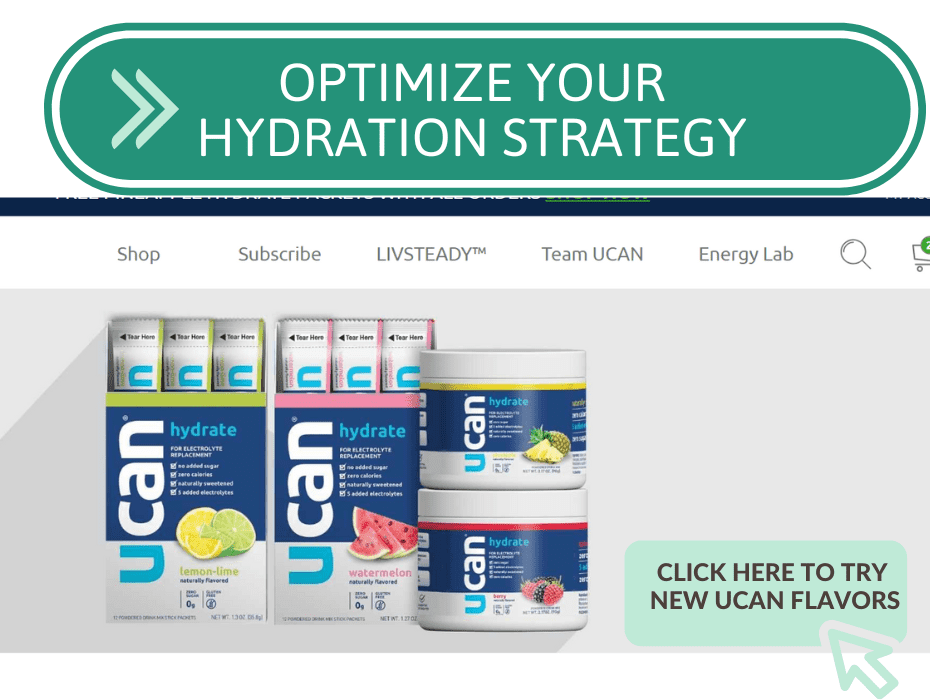
This doesn’t have to just be sports drinks – there are plenty of salty foods, including soups, tomato sauce, pizza, pretzels, breads, bagels and popcorn. You can replenish potassium through fruits, veggies and yogurt.
You can also make your own homemade electrolyte drink.
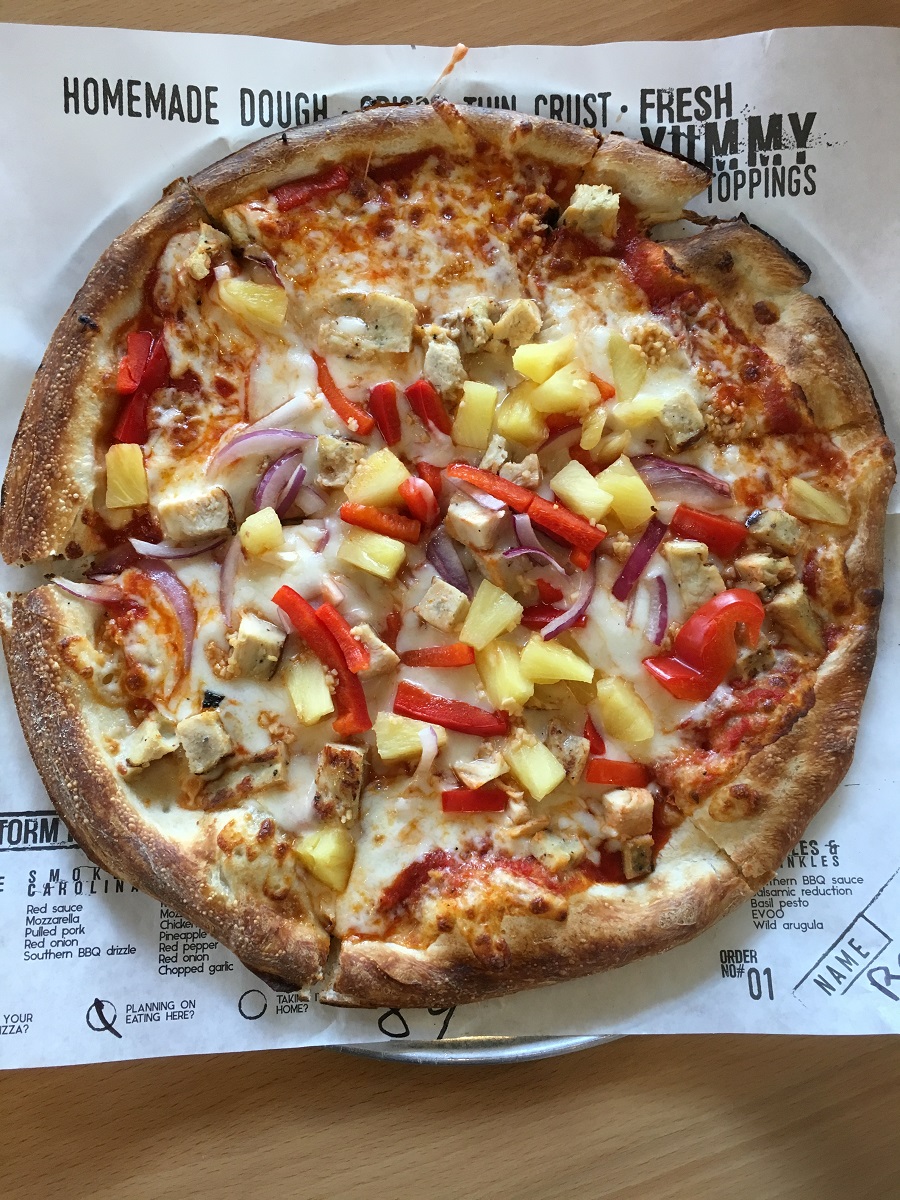
Fluids
You’ve probably heard that checking your urine is the best way to tell if you’re hydrated vs dehydrated, and that’s true. You want a pale yellow color.
Additionally, symptoms of headaches, chronic fatigue and lethargy are also signs of dehydration.
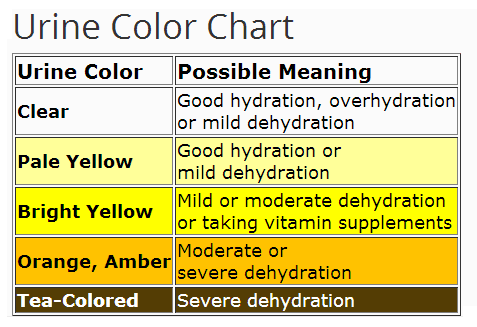
Dehydration is cumulative and it stresses the body. When we don’t have enough fluid on board, our body temperature rises, our heart rate increases, and exercise feels harder.
You don’t want to be in a fluid deficit before you start exercising, so try to drink sufficient fluids beforehand. For example, you wake up dehydrated so having 16-24 oz of water before a morning workout is recommended.
Ideally, you want to replace the fluids you lose through sweating. Now in the summer, that’s probably a lot more (more on summer hydration and winter hydration).
A good way to tell how much water you’ve lost through exercise is to weigh yourself before and after – a pound of sweat loss is about 16 oz of water. You want to replenish what you lost plus some.
You don’t want to lose more than 2% of your body weight (about 3# for a 150# person).
Water is best, but there is a place for sports drinks, and even milk products too! I love NUUN tabs that help me drink more water and also add in electrolytes.
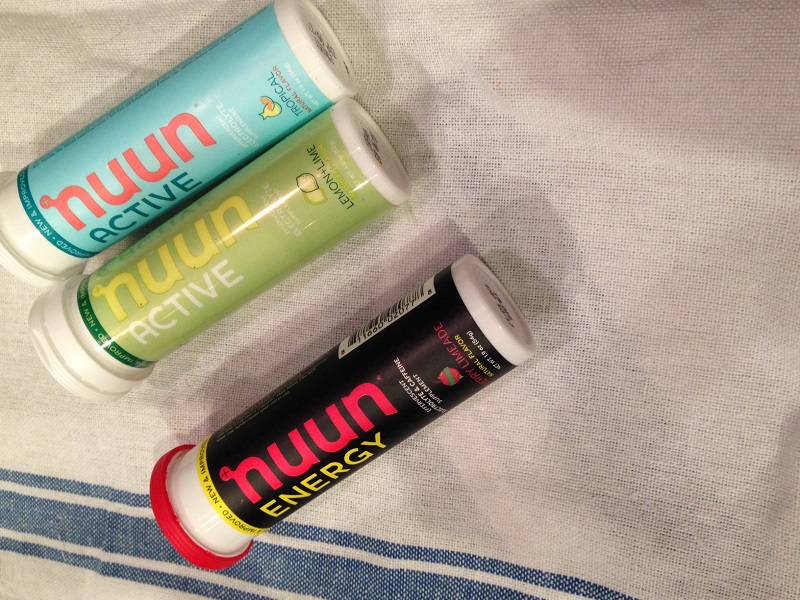
More Running Posts
- How I Recovered from a Marathon
- Race Day Nutrition – The Ultimate Guide to Pre, During and Post Race Nutrition
- What Happens if you exercise without eating enough
- Nutrition Tips to Help with Runner’s Gut
If you’re looking for more running or specific sports nutrition resources, Nancy Clark has some great books.
I have the Sports Nutrition Guidebook and the Food Guide for Marathoners, and love them both.
Support Bucket List Tummy

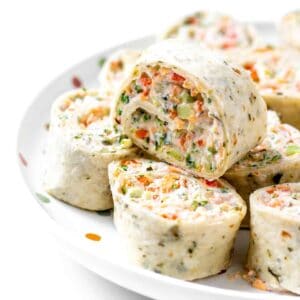



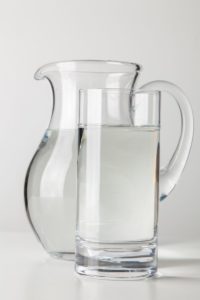
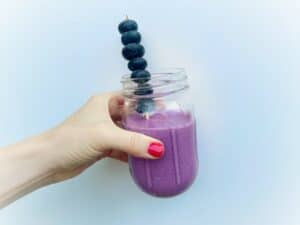
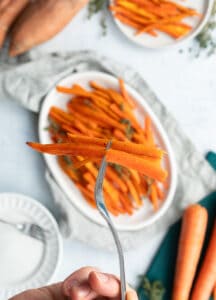
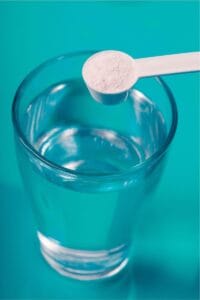
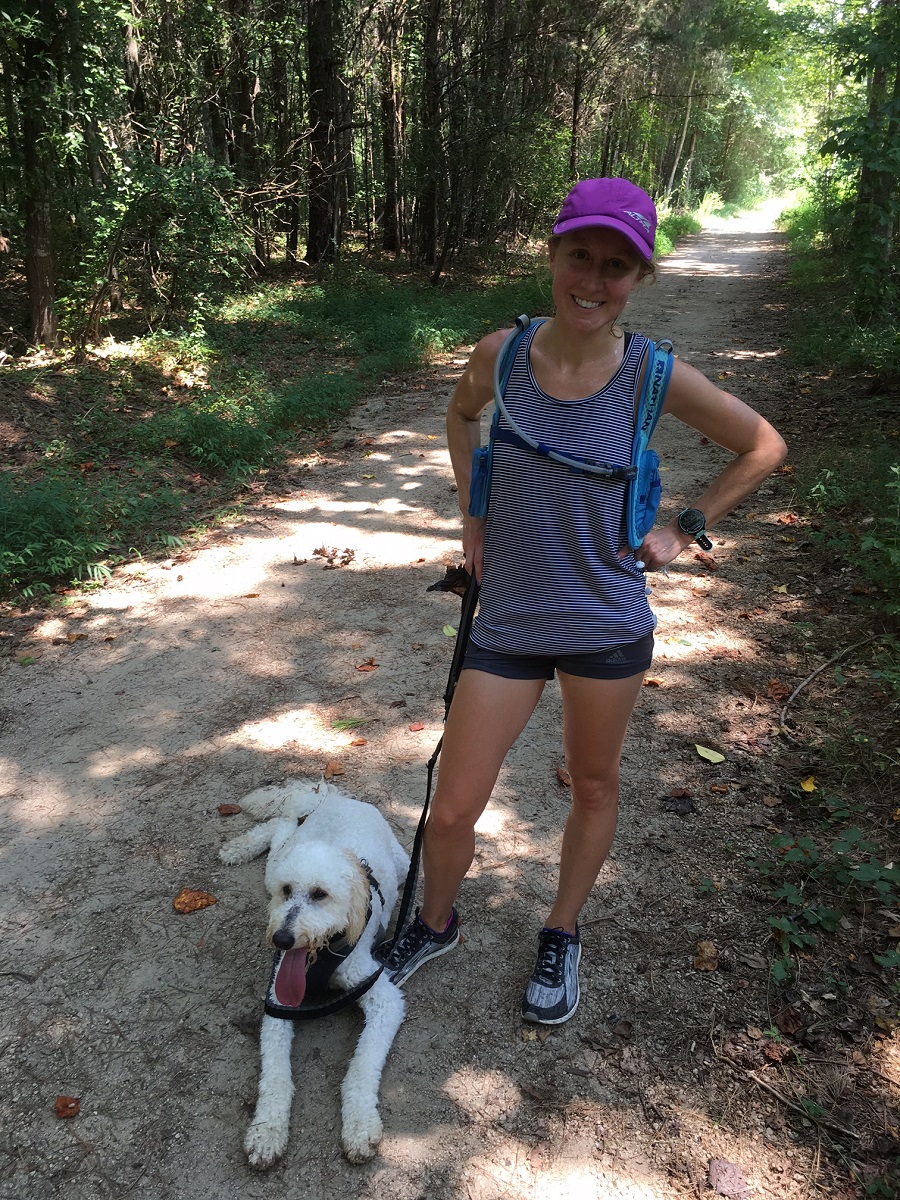

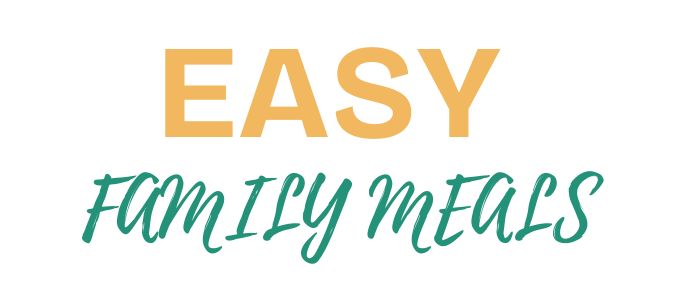
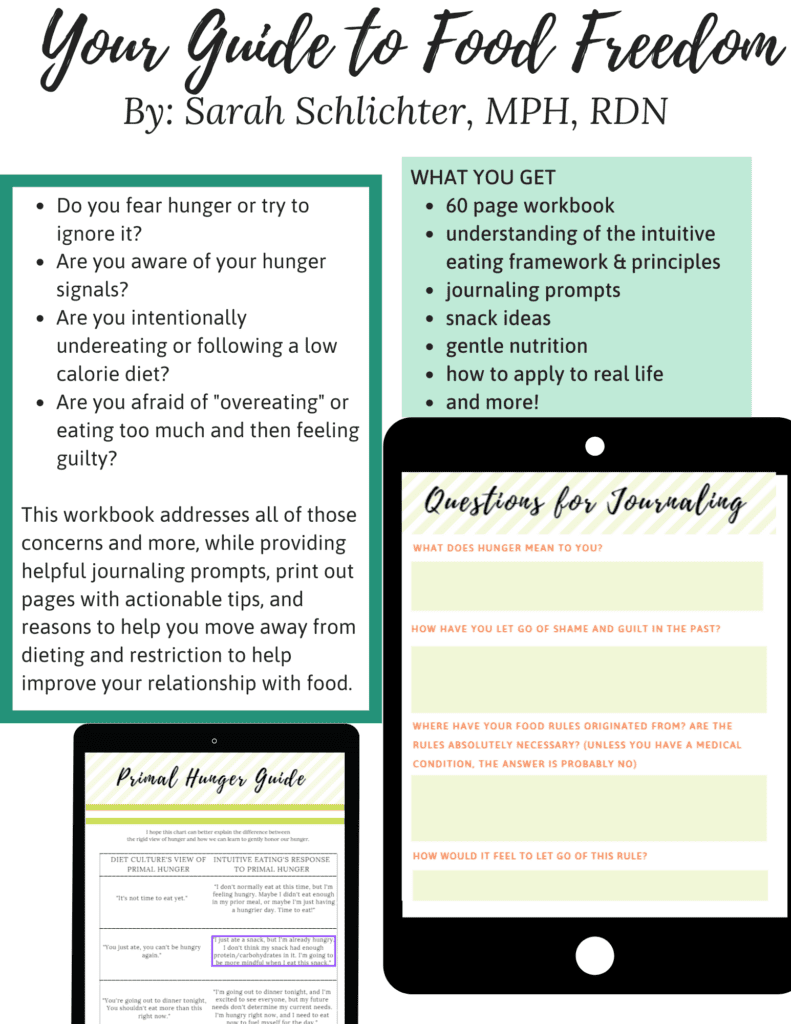
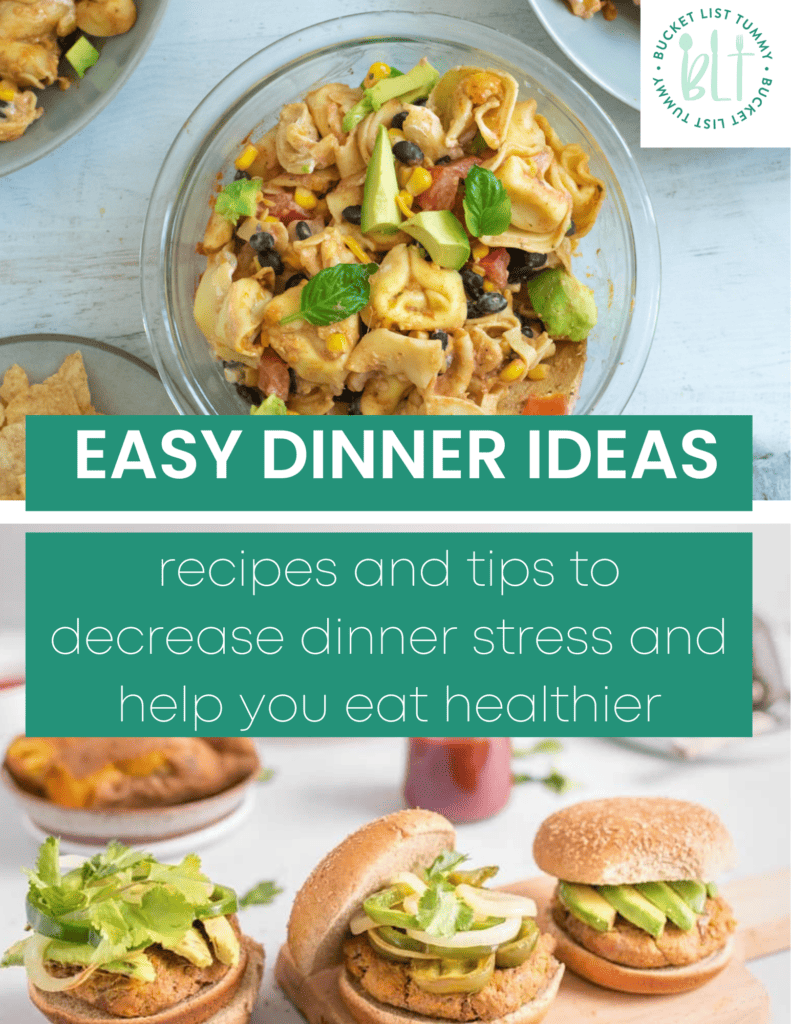
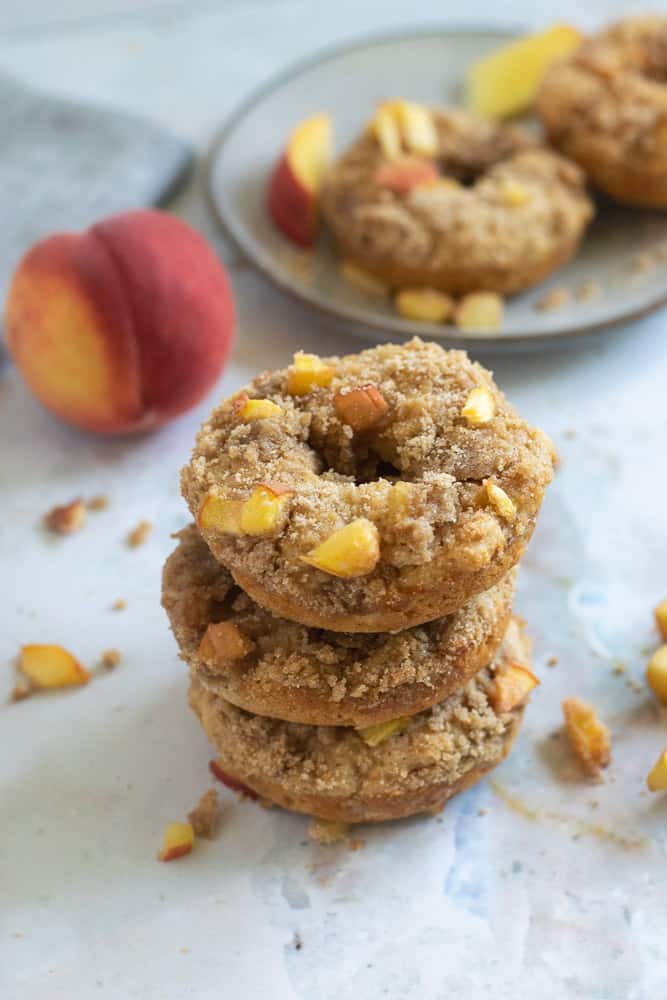
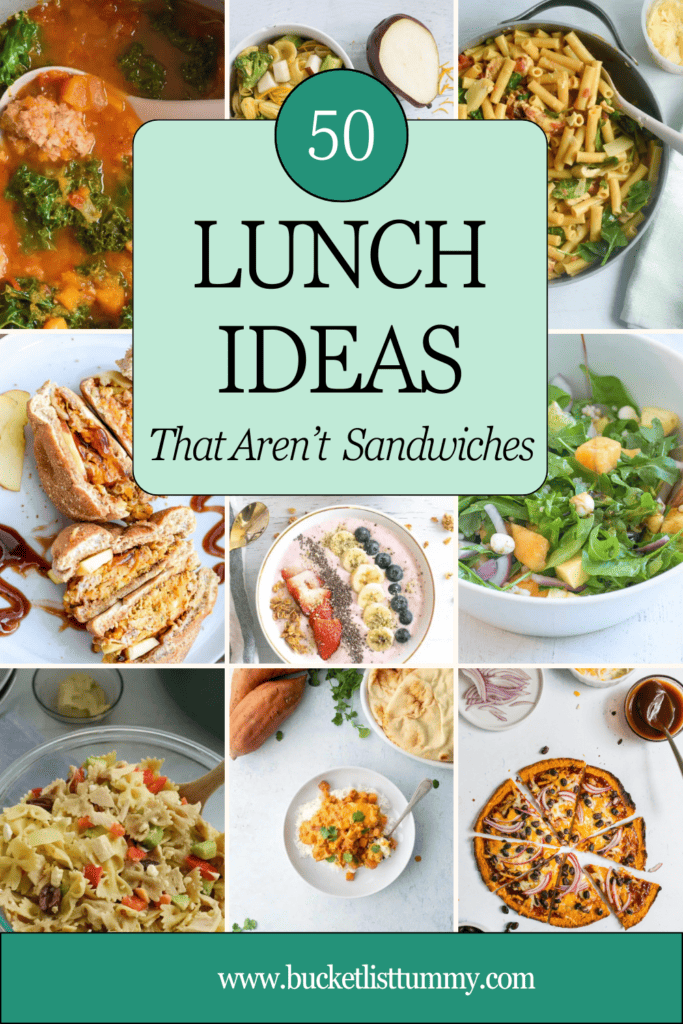
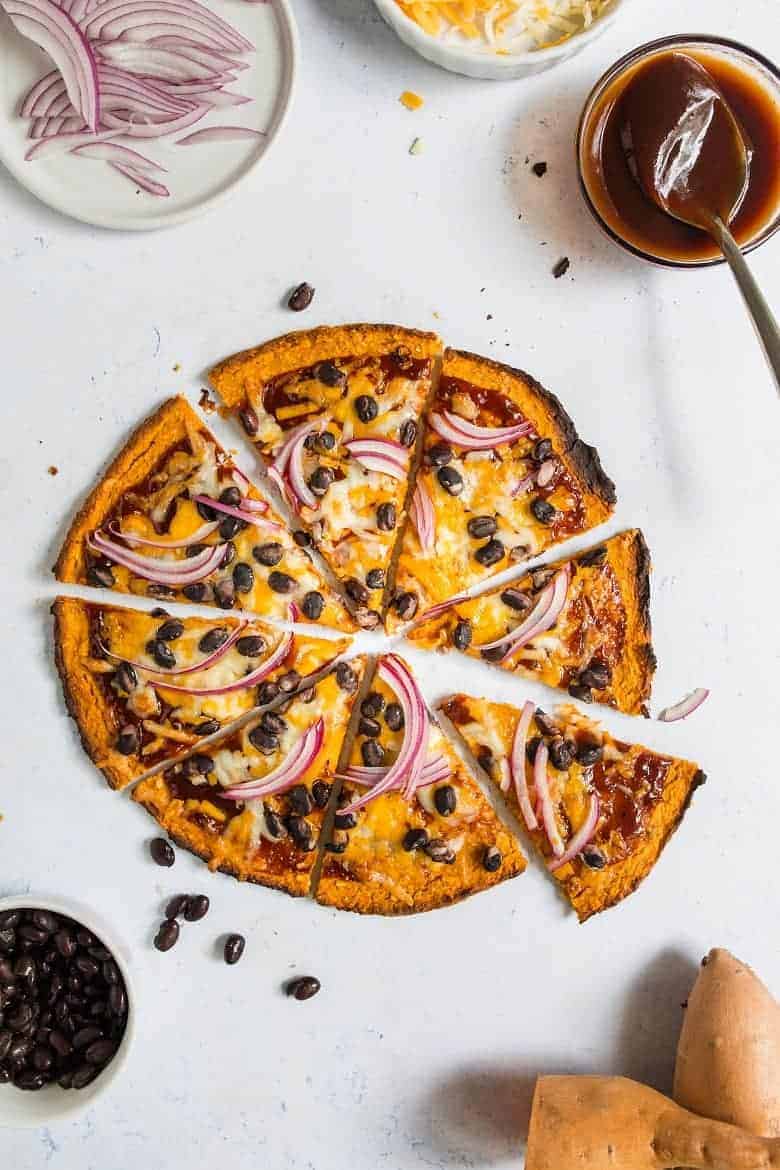
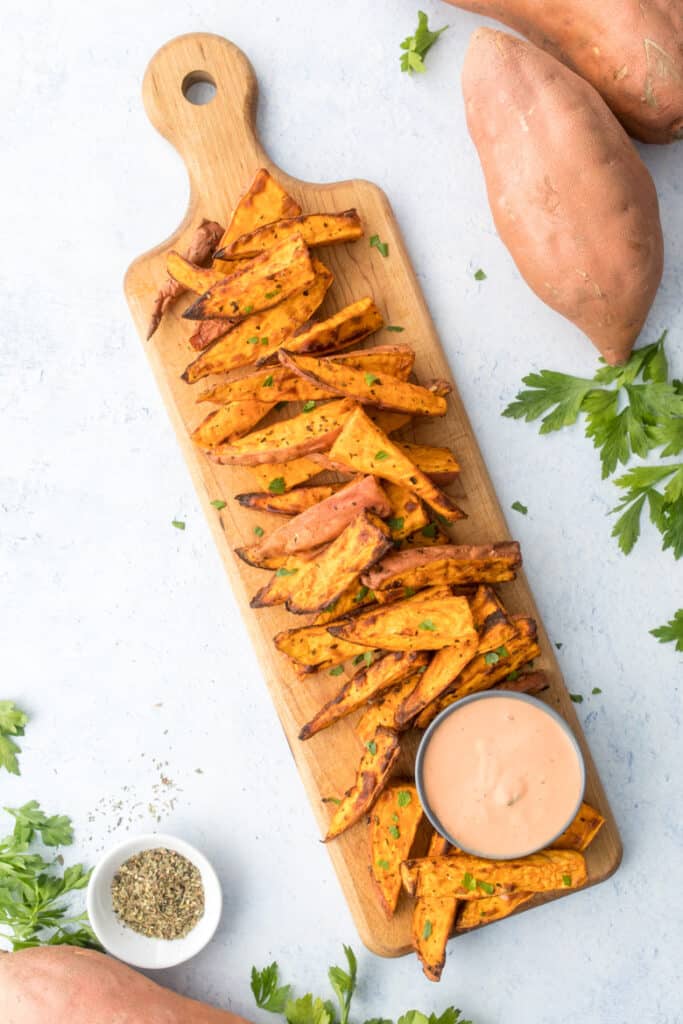
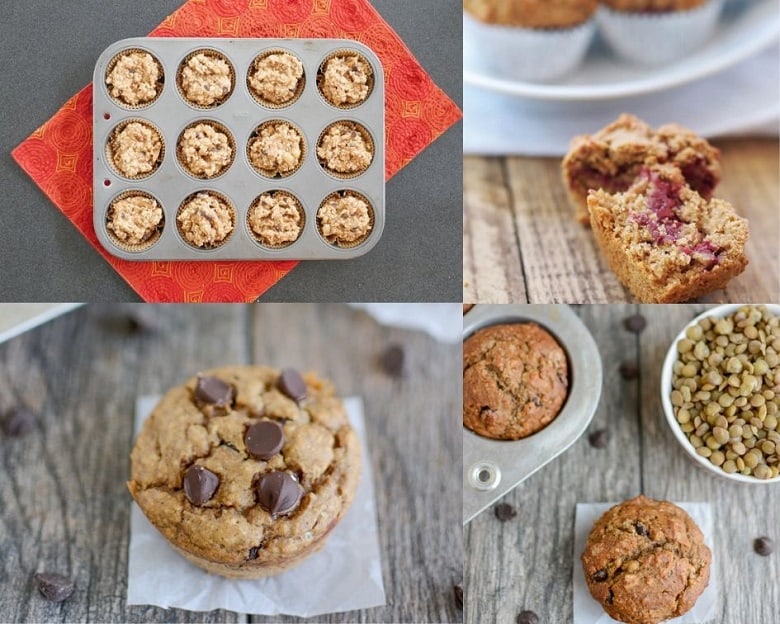
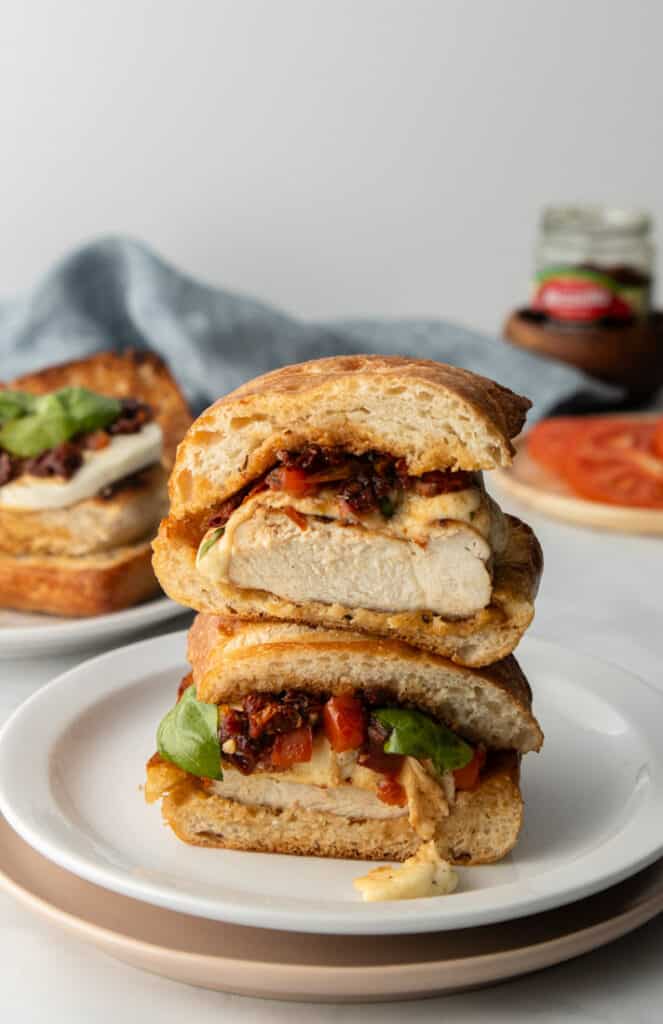
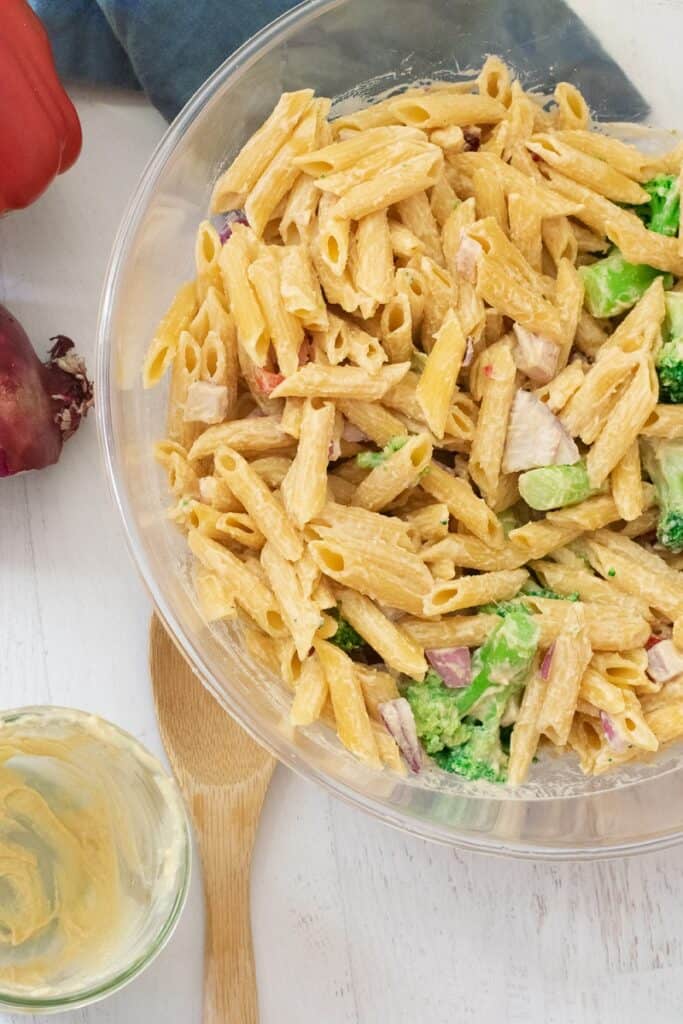
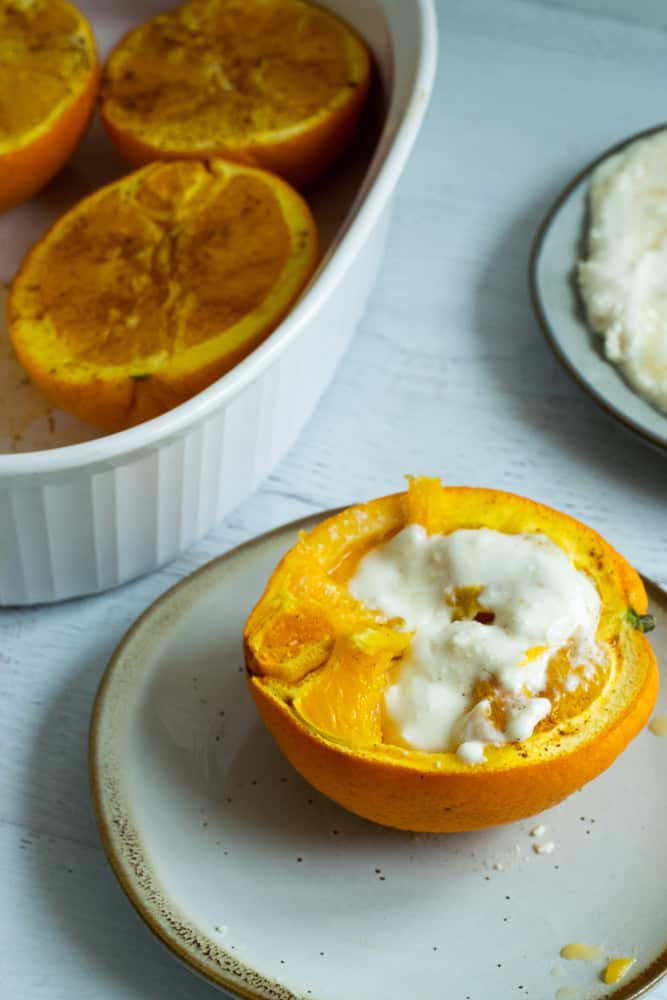
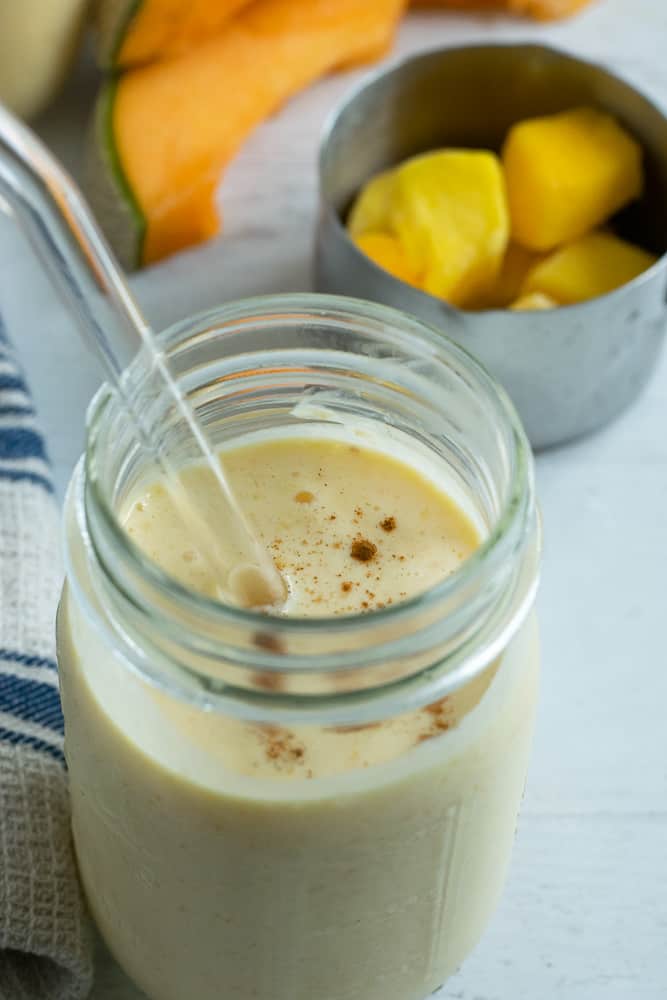
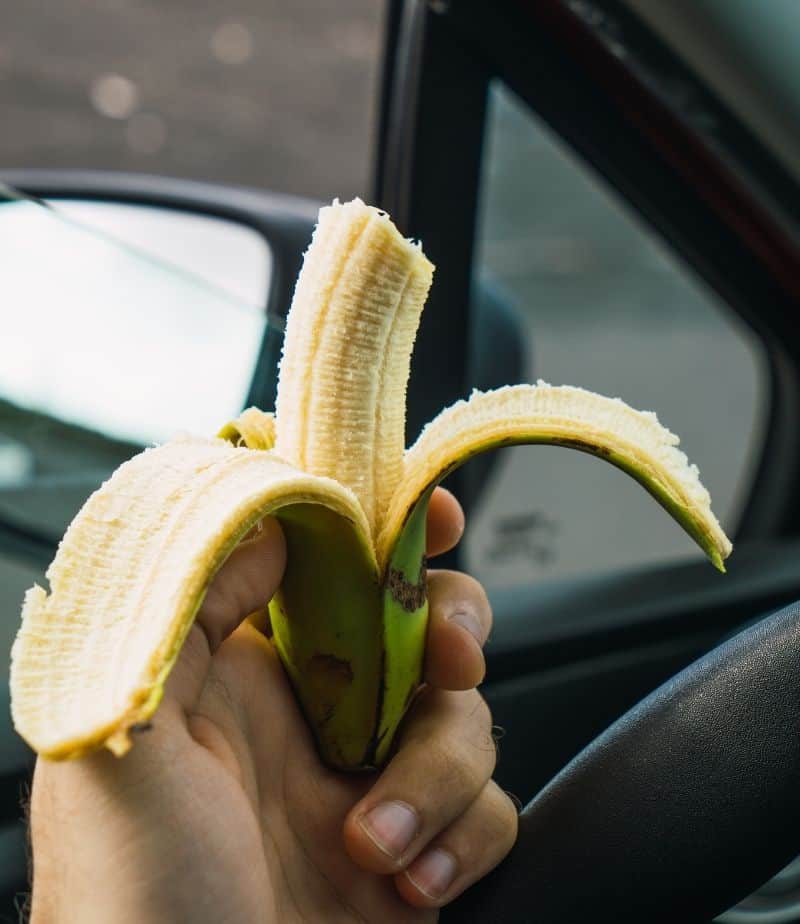
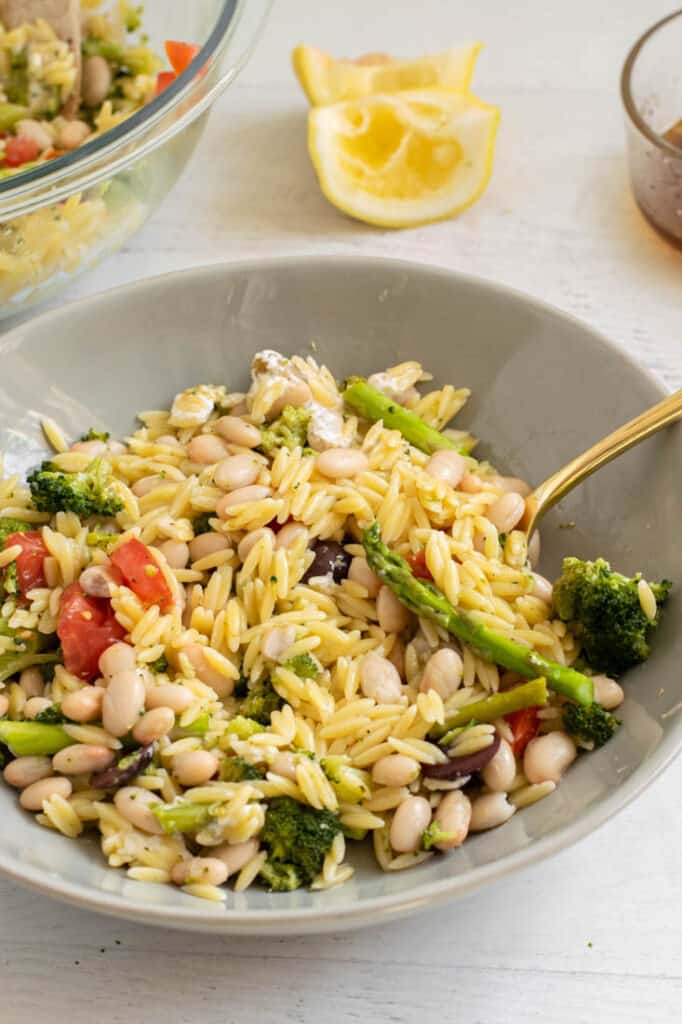
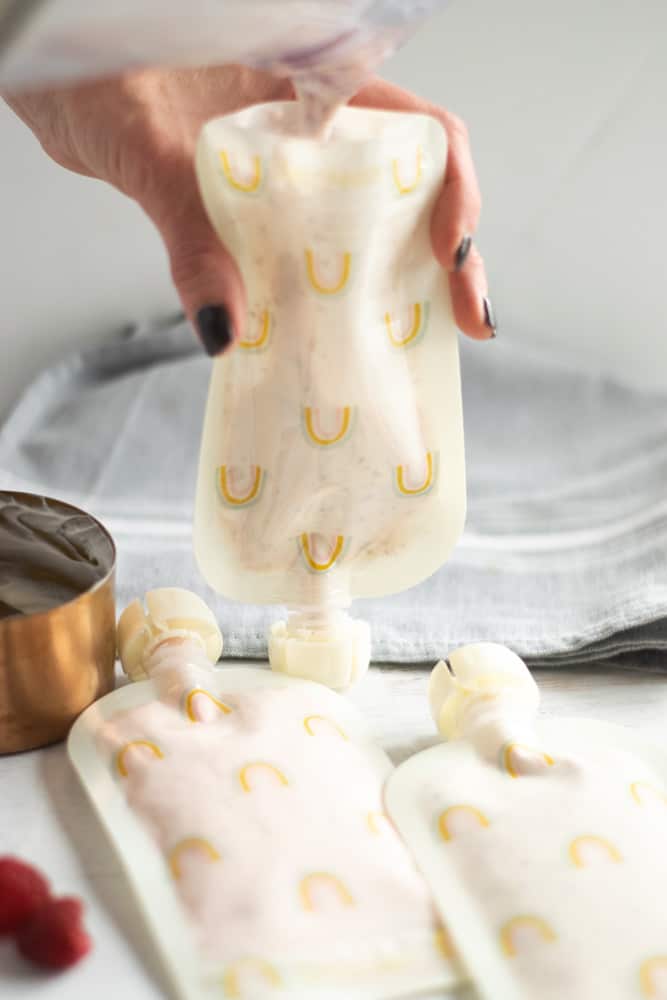
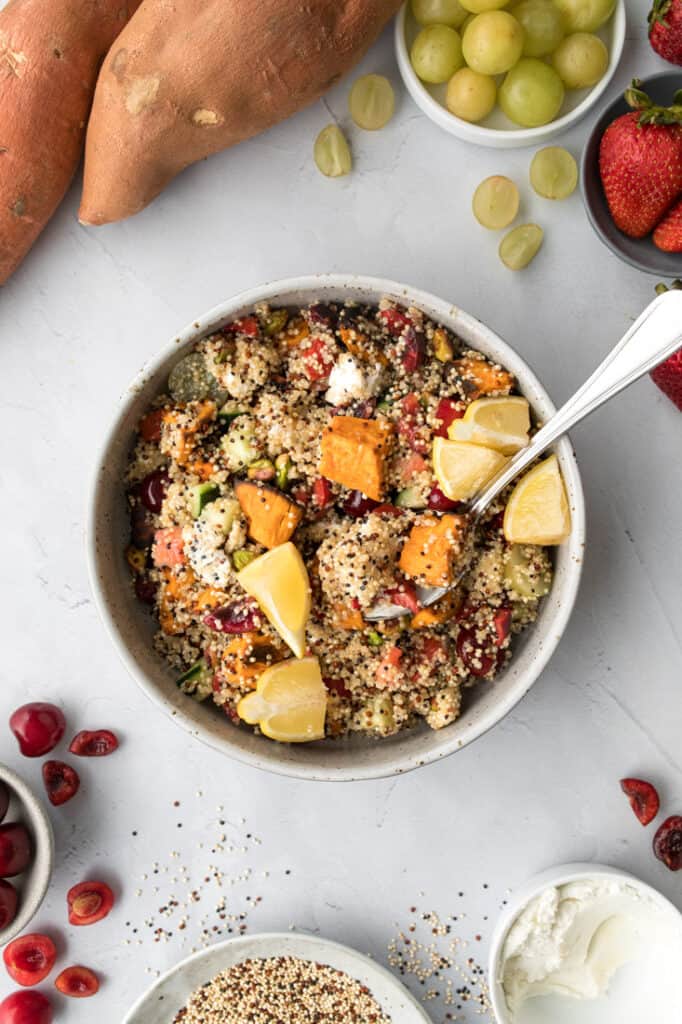

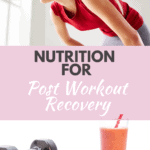
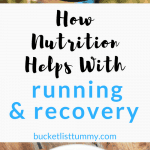
Like This Content?
Support Bucket List TummyHi Sarah!
Do you have any tips for pre-workout snacks?
Being that I’ll be starting law school in two weeks id really like to fine tune my morning workout routine, as I’ll only have so much time in the morning. I’m an early riser and lately I’ve been eating breakfast and hour before a workout, but I won’t have an hour to wait around until my workout so I don’t get an upset stomach.
Whether it’s running or workout videos, 30-60 minute workouts, do you even suggest eating a small snack before? Was thinking a small apple or melon or crackers…but I’m not really sure. I really love bananas, and have heard they’re a good pre-workout snack but I eat at least a half of one every day with my breakfast along with berries and some carb, and sometimes ill have some banana and peanut butter as a snack before bed, but the fear of food I’m still trying to kick is telling me that 1+ bananas a day is too many. I’m a work in progress, especially when it comes to bananas and I suppose carbs in general. Is there such a thing as too many?
99.9% of the carbs I intake come from unprocessed foods like fruits and veggies with the occasional whole grain bread/wrap if that makes any difference…
Hi Ashley – technically, you don’t need a snack before a workout less than an hour because you have enough glycogen stores. That being said, if you’re hungry, I always tell clients to eat. Personally, I wake up starving and need to eat something carbohydrate based before a workout or run. You could try dry cereal, half a banana (you don’t need to worry about overdoing bananas), or a piece of toast with peanut butter – it doesn’t have to be huge, but it gives you some energy to fuel the workout! Hope that helps 🙂
Hi Sarah! I’m so happy I stumbled on this post, because it is so darn thorough. I love how you talked about salt and sweat ratios for people — that’s something that isn’t discussed enough. Great work here! Sharing now! 🙂
Thank you so much Ashley!
Hello! I love your blog! I really look forward to all of your informative posts. They are definitely some of the best out there! So I need to loose weight and was thinking of training for a half marathon to accomplish this. However, as you mentioned earlier they are two goals that can’t really be accomplished together. Should I just focus on smaller distances at a faster pace? More along the lines of intervals? Or strength training and hiit ?So confused. Especially because my personal trainer zealously opposes any sort of steady state cardio. Any advice for me? Thank you!
Hi Mari,
Since training requires a lot of energy and extra nutrients, I don’t recommend my clients try to lose weight while training – something is likely to suffer, whether it be the running or the person. I don’t specialize in weight loss with my clients – rather I focus on intuitive eating principles. If you’re interested in more information, feel free to email me: [email protected].
Really great tips! I’ve been thinking a lot about electrolytes lately, especially with this summer heat and humidity! Nutrition can’t be overlooked.
This summer heat is brutal! Hydration and electrolytes are vital.
This is such a great post! I think too many people focus on “recovery” as rest days and stretching and forget that nutrition really counts!
Nutrition is one of the key players!
Great read – as an active person (hiking/yoga) this was a really handy and relevant read. <3
So glad you found it helpful!
These are all GREAT tips.
My runs do not go well if I do not eat carbs before and during. I also really crave chocolate milk after a run or race.
Thanks for linking up.
Chocolate milk tastes GREAT after a hot run!
this is a very interesting topic for me! what I struggle with the MOST though is – what to eat, when to eat it and how to stay fueled for runs/workouts AND lose weight. Because the weight loss isn’t happening at all. Ideally I should be about 15-20 lbs lighter to improve my running. I often wonder if I’m not actually eating ENOUGH but then I always feel like I’ve had too much to lose any weight (I’m not gaining, so, there’s that). It seems so EASY when you read blog posts such as yours, or books or other articles, but putting everything into practice is so hard. And not one single dietician I’ve been to has actually been able to tell me what, when and how much to eat!!
Hi Renee – I see it more often than not for clients not eating enough to sustain their aerobic exercise. I always caution people that training for something and losing weight are two goals that can’t really exist concurrently. I’m sorry that you haven’t had any luck with past dietitians – I agree that putting things into practice can be difficult and each person is so incredibly different.
Love your references to Nancy Clark; I read her nutrition book waaay back in college (I’m 38!) Super helpful advice for my first marathon this year. I agree that nutrition is so important for recovery. Love how you broke it all down!
She is my idol! So excited when I met her this May, she has done some great things for sport nutrition!
It is super amazing how much I crave salt especially after a summer run because I sweat so much; and I’m thankful you shared that our bodies might have a longer window after a workout for refueling with carbohydrates/a bit of protein. It’s absolutely incredible how God designed our bodies to need different things at different times and how the right nutrition can really help recovery. I’m slowly building up mileage for a half marathon, and I”m noticing that I think my nutrition is better this time around so it’s not as difficult to recover. You have really helped me with your advice over the past year or so especially with your marathon training posts.
Thanks so much for your kind words, Emily. Excited for you and your half! Which half are you doing?
I usually eat breakfast after I run, so peanut butter in cereal and an apple is a favorite. If I have an afternoon session, I try to time it so I eat dinner afterwards, but if I have longer than an hour to wait, frozen fruit is my favorite!
Very similar to what I do!
Sometimes I feel like eating after a hard or long run. Yesterday’s run was perfect because it ended at a bagel shop. Perfect opportunity to have a breakfast sandwich! I think I was dreaming of that sandwich for the last 4 miles. Lol!
My favorite way to end! 🙂
What a great post! Nutrition is so important. Both for fueling up before a run and post run for recovery.
Thanks for sharing all of the great information!
Thanks for reading, Sara!
Post run fueling was such a struggle with me during my marathon training because the last thing I wanted to do after a long run was eat. I would have a Starbucks frappe and that would be it for several hours. So not nutritious!
It’s common to not have an appetite after a long run, especially in the heat. Sometimes you just have to force yourself, or sip on liquids.
Thanks for all of this very helpful information! Today, I ate scrambled eggs with cheese with a piece of strawberry toast with creme cheese. Friday, I weighed myself before/after my run. Even though I drank 32 ounces during a short 4.5 mile run, I still lost 2 pounds. This heat (and my excessive sweat) is no joke!
It’s crazy with the heat! It really is something to be aware of!
This is great information! I have a hard time eating anything after a long race or training run. It’s not that I feel sick or anything, I simply am not hungry. It’s good to know it’s not an immediate do or die situation if I wait a little bit 😉
Yes – the window is longer than originally thought 🙂 But probably good not to wait too long!
I often do not feel like eating immediately after a hard workout but I know that I need to be better about it. Thanks for the reminder.
I definitely have some of those days too. But I know I’ll feel better the next day if I eat something.
These are really great tips! I definitely need to be a little more mindful about what I eat after a run. Sometimes I’m not that hungry, so I don’t eat a lot and other times I feel like I can eat a stack of pancakes, lol.
I think that can be the tricky part! Sometimes when I’m not super hungry, smoothies do the trick!